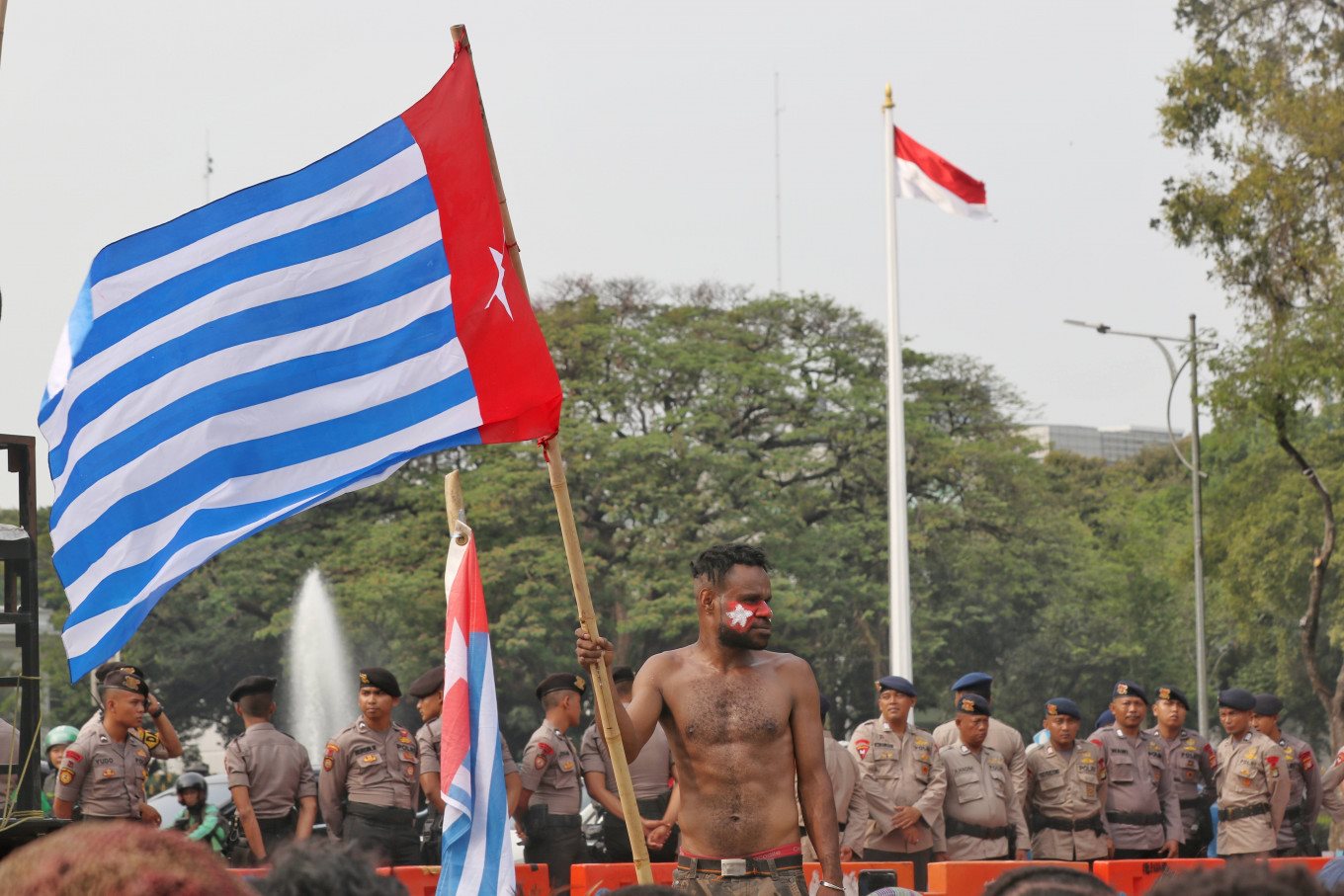A prominent campaigner for West Papuan independence say the activist community in Australia will continue to spread awareness despite recent violence that has claimed dozens of lives in the Indonesian province.
Jefry Yikwa said the violence would not deter the local community, which has been politically active in Melbourne for years.
Mr Yikwa said they were used to the dangers faced by their people back home, though recent events had really rocked the community.
“Some of us within the community are still in grief, some of their families are still in danger,” he said.
Though none of his family or close friends had been hurt in the unrest, he added: “Some of the people I know back home, some of them are dead. This is not something that is new to me.”

During the Pacific Islands Forum held in Tuvalu last month, a majority of nations resolved to “strongly encourage” Indonesia to allow a UN high commissioner to investigate reported human rights abuses in West Papua before next year’s meeting.
Australia was one of the few dissenters from this vote, citing the 2006 Lombok Treaty, of which it is a signatory to, which acknowledges Indonesia’s sovereignty over the territory.
This is the same forum in which Australia also found itself out of step with majority consensus on the climate action.
Vanuatuan Prime Minister Charlot Salwai brought the issue before the UN General Assembly in New York, which concluded in late September.
“We have to be on the right side of history..
The people of #WestPapua have never had the chance to choose their own future like every other country here has, and it’s time to rectify that situation.” @RRegenvanu speaking to @SBSNews outside @UN HQ.#UNGA #auspol #Papua pic.twitter.com/56roGmbafd
— Virginia Langeberg (@v_langeberg) September 28, 2019
This is where Mr Yikwa says the community will focus its attention in Melbourne and around Australia over the next twelve months;
“We are hoping to encourage locals to put pressure on the government to tear up the Lombok Treaty. It’s bullshit, people are dying,” he said.
Mr Yikwa also works with the Pacific Climate Warriors, a group demanding action on the climate crisis.
Cyndi Makabory, a West Papuan member of the group living in exile in Australia due to her mother’s activist work, was the first guest speaker at the recent climate change rally and spoke of how climate change was affecting her region, and also drew attention to the political situation of her homeland.
“I am very fortunate to call Australia home, because I can be a voice for my voiceless brothers and sisters back home who are fighting for freedom and self-determination,” she said.

Last week at least 30 people were killed and more than 70 injured as the Indonesian military opened fire on West Papuan protesters in separate cities.
The fatal protests in Wamena and Jayapura were partially in response to an Indonesian teacher referring to a Papuan student as a “monkey”. Some of the victims were high school students.
Tensions had been high for months in the country; August saw violent anti-Indonesian demonstrations, which included Papuan activists setting government buildings alight in Surabaya, on the island of Java, following the arrest of 40 Papuan students for reportedly damaging an Indonesian flag outside their dormitory.
#WestPapua is becoming another East Timor. #Indonesia‘s President @jokowi must allow @UNHumanRights Commissioner @mbachelet and her team of observers immediate access. The time for this visit is now. There can be no more delays. #UNGA
Full statement: https://t.co/EAg0yzBcfL pic.twitter.com/Koe7jbYJlP
— Benny Wenda (@BennyWenda) September 24, 2019
Comparisons to the situation in East Timor by some, such as exiled West Papuan leader Benny Wenda, are an unfortunate irony as Australia celebrates the 20th anniversary of its military intervention in the region.
West Papuan protesters are routinely jailed and assaulted in Indonesia for singing the regional anthem, or displaying the regional flag, ‘the Morning Star’, both of which have become symbols of rebellion and self-determination.
Mr Yikwa spoke of how willing people in the region were to take those risks.
“If you’re mentally ready, you will take to the streets to march and protest, aware of the potential consequences. Most of the people I know are a mentally ready.”


